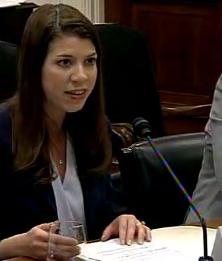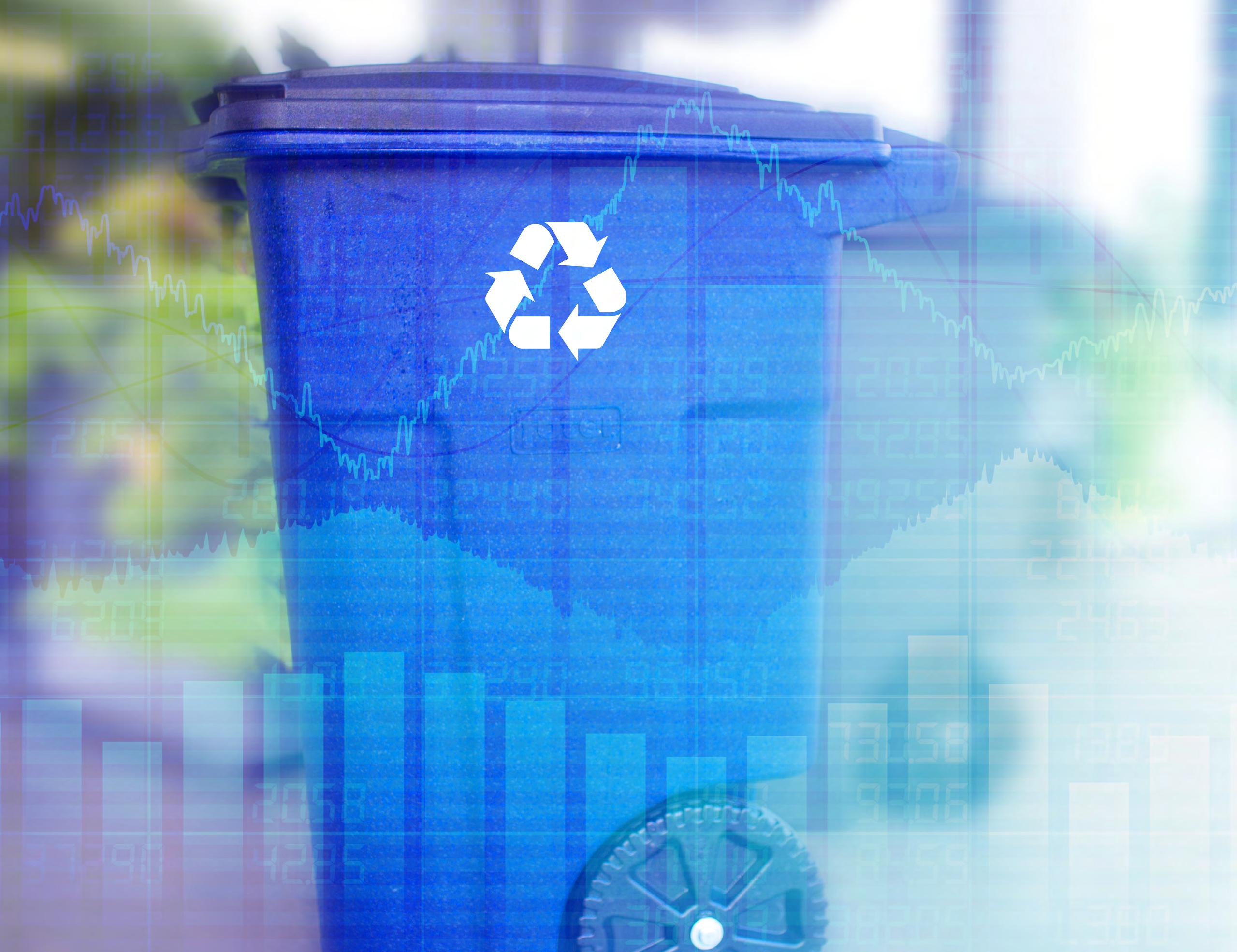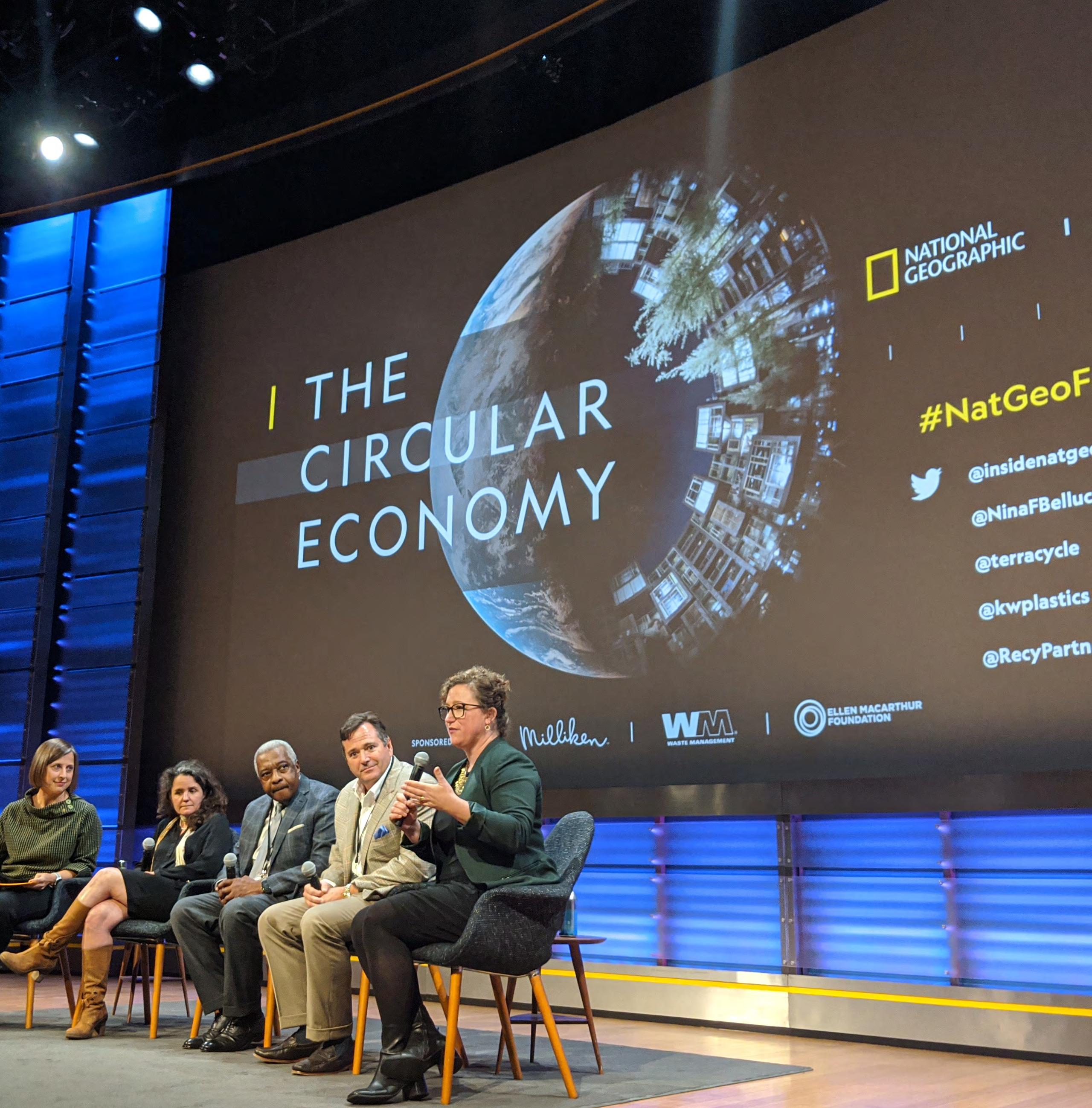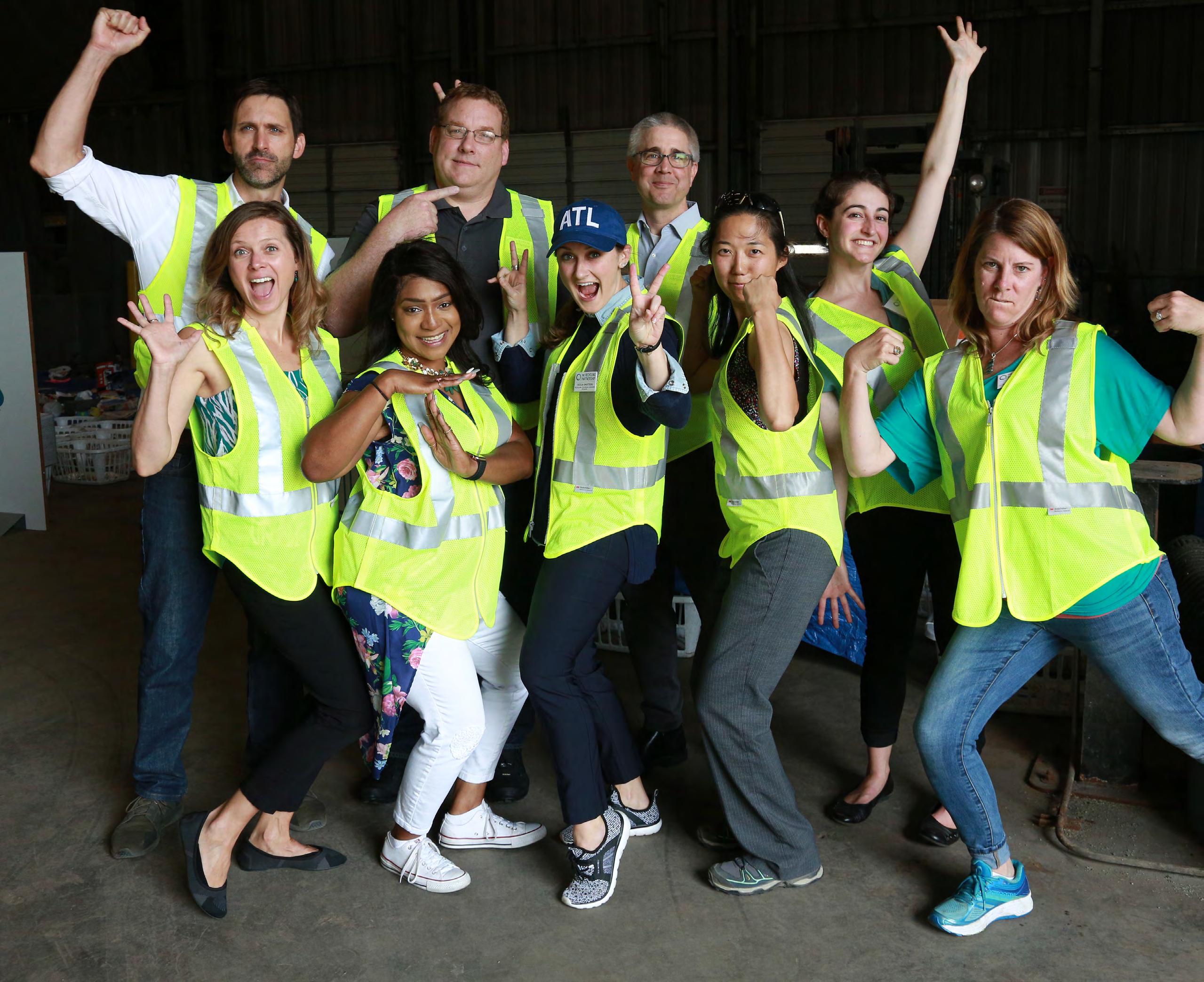
3 minute read
Policy to Drive Impact & Fight Headwinds
Policy to Drive Impact and Fight Headwinds THE CIRCULAR ECONOMY ACCELERATOR
In the State of Curbside report, The Recycling Partnership estimated a need for $9.8 billion in investment to create a truly robust recycling system in the U.S. The Circular Economy Accelerator launched in April 2019 to drive change by building consensus and advocating for attainable policy and legislative solutions that rapidly advance the circular economy.
This mission-driven policy arm pushes for and seeks to shape policy that incentivizes recycling over disposal; secures sustainable funding for recycling infrastructure and education; and expedites and innovates toward public-private solutions.
The team has worked with policymakers at all levels across the country to support and help shape legislation that moves more and better recyclables out of citizens’ homes into the recycling system to be a part of the circular economy.
The policy team successfully launched an effort to study the economic impacts of the circular economy system in Indiana. This work lays the groundwork for future policy in a state with some of the greatest untapped populations for recyclable materials. Policies could not only support recycling collection for all residents, but also a robust recycling industry hungry for raw material feedstocks. While the study won’t be ready until next year, the legislature will have a summer study committee to look at state recycling markets and the nature and extent of recycling resources to meet the needs of the state. The foundation was built support from Indiana’s Department of Environmental Management, the Recycling Market Development Board, and talking with Governor Eric Holcomb and his policy staff about how they can support the circular economy in the Hoosier State.

Florida: HB 73 Environmental Regulation
The Accelerator successfully advocated to amend legislation that would have resulted in increased landfilling of recyclable materials in Florida. The Recycling Partnership worked with the bill sponsor and stakeholders to achieve consensus on amended language to help ensure that common recyclables could not be considered “contamination,” and to ensure that landfilling of recyclables could not occur outside of hauling and processing contracts. We provided testimony to committees in both the State House and Senate in support of the amendment. At the time of publication of this report, the bill was awaiting action by the Governor.
Federal Landscape and Hill Testimony
In a year which saw more federal activity around recycling than has been seen in more than a decade, the policy team for The Recycling Partnership was brought to the table as the expert voice of the recycling system – providing guidance and data on bipartisan issues facing the supply chain and how to develop the circular economy.
With the RECYCLE and RECOVER Acts, The Partnership staff worked with stakeholders and policymakers to support two strong bills to help improve recycling at the federal level. The bills, which would collectively inject more than $1
billion into the recycling system, are focused on two key needs of the recycling system – federal financial support and coordination for recycling education and infrastructure.
The Partnership has emerged as the go-to source for both big picture information and granular on-the-ground data about the residential recycling system. We are often called on to brief House and Senate Recycling Caucuses, House Appropriations members, and staff on issues and innovations in the circular economy.
Proposed Circular Economy Transformative Policy
The Circular Economy Accelerator is made up of more than 30 funding partners of The Recycling Partnership, including stakeholders from throughout the value chain and of all material types – glass, metals, plastics, and paper – to develop a policy proposal to transform recycling and catalyze the transition to a circular economy for all materials.
As acknowledged in the Bridge to Circularity report, policy will play a key role in making the System of the Future possible and unlocking materials to feed into the circular economy. The four key objectives of our policy proposal to be released in Q2 2020 will be to:
1. Level the playing field between the costs of disposal and recycling;
2. Increase recycling rates and available supply of recyclable materials;
3. Lower operational costs and contamination; and
4. Improve the health of the U.S. recycling system
Our policy work is built on the fundamental principles of The Partnership: to bring together stakeholders in a pre
competitive field to create inventive solutions that are greater than the sum of their parts. The work of the Circular Economy Accelerator is ongoing in 2020 and we invite any companies that wish to work together with their peers to shape a uniquely American system of stakeholder intervention into the recycling system to come aboard.






